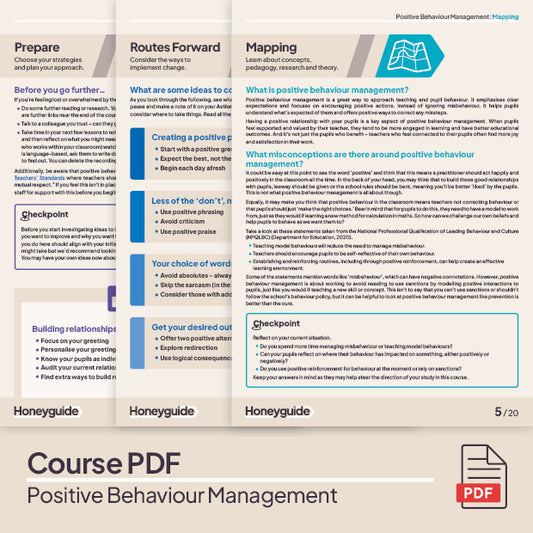Collection: Behaviour Management Training
Elevate your team's approach to behaviour management with our concise and impactful behaviour management training sessions. These focused sessions are designed for twilights, INSETs, staff meetings or other training slots and address specific issues, providing practical strategies for immediate implementation. Our comprehensive courses go into greater depth and provide differentiated presentation materials, offering a bespoke learning experience that aligns with individual pathways. Say goodbye to costly external courses – Honeyguide brings professional development directly to your school, ensuring a harmonised approach to behaviour management that caters to the unique needs of your team.
-
Behaviour and Attitudes Audit
Regular price £17.50Regular priceUnit price / per -
Positive Behaviour Management CPD Course
Regular price £35.00Regular priceUnit price / per -
Redirecting Low-Level Behaviour: CPD Session
Regular price £5.00Regular priceUnit price / per -
Tackling Inappropriate Language: Behaviour CPD Session
Regular price £5.00Regular priceUnit price / per -
Working With Families to Support Behaviour: CPD Session
Regular price £5.00Regular priceUnit price / per -
Responding Calmly to Manage Behaviour: CPD Session
Regular price £5.00Regular priceUnit price / per












